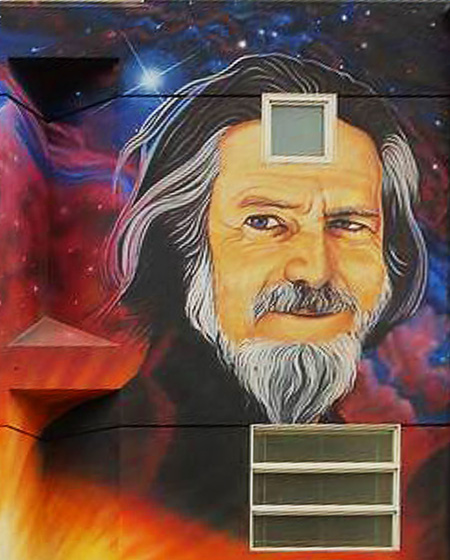Out Of Your Mind (2004), Audio lecture 1: The Nature of Consciousness: A Game That's Worth The Candle
Alan Watts Quotes
Source: The Book on the Taboo Against Knowing Who You Are (1966), p. 78
Inside Information p. 7
The Book on the Taboo Against Knowing Who You Are (1966)
The Spectrum of Love
Inside Information
The Book on the Taboo Against Knowing Who You Are (1966)
The Nature of Consciousness http://www.erowid.org/culture/characters/watts_alan/watts_alan_article1.shtml; also published as What Is Reality? (1989)
Inside Information p. 4
The Book on the Taboo Against Knowing Who You Are (1966)
Source: The Book on the Taboo Against Knowing Who You Are (1966), p. 107-108
Source: Psychotherapy, East and West (1961), p. 7
Audio lecture Ramakrishna, Ramana, and Krishnamurti (in part three of four)
Inside Information.
The Book on the Taboo Against Knowing Who You Are (1966)
Source: The Book on the Taboo Against Knowing Who You Are (1966), p. 73
Source: The Book on the Taboo Against Knowing Who You Are (1966), p. 111
“Sex is no longer a serious taboo. Teenagers sometimes know more about it than adults.”
Inside Information p. 4
The Book on the Taboo Against Knowing Who You Are (1966)
Alan Watts Teaches Meditation (1992)
Source: The Joyous Cosmology: Adventures in the Chemistry of Consciousness (1962), p. 91
Source: The Book on the Taboo Against Knowing Who You Are (1966), p. 14
Source: The Book on the Taboo Against Knowing Who You Are (1966), p. 70-71
Source: The Wisdom of Insecurity (1951), p. 32
Source: The Book on the Taboo Against Knowing Who You Are (1966), p. 112
Source: The Book on the Taboo Against Knowing Who You Are (1966), p. 90
Alan Watts Teaches Meditation (1992)
“I have suggested that behind almost all myth lies the mono-plot of the game of hide-and-seek.”
The Two Hands of God : The Myths of Polarity (1963), p. 29
Source: In My Own Way: An Autobiography 1915-1965 (1972), p. 18
The Nature of Consciousness; also published as What Is Reality? (1989)
Source: The Book on the Taboo Against Knowing Who You Are (1966), p. 94
Source: In My Own Way: An Autobiography 1915-1965 (1972), p. 123
Source: The Book on the Taboo Against Knowing Who You Are (1966), p. 60
Foreward to The Secret Oral Teachings in the Tibetan Buddhist Sects (1964)], by Alexandra David Neel
Watts' Foreward to The Secret Oral Teachings in the Tibetan Buddhist Sects (1964)], by Alexandra David Neel
In the same way as the fruit comes out of the tree, the egg from the chicken, and the baby from the womb, we are symptomatic of the universe. Just as in the retina there are myriads of little nerve endings, we are the nerve endings of the universe.
Source: Ways of Liberation: Essays and Lectures on the Transformation of Self (1983), p. 25
“We cannot be more sensitive to pleasure without being more sensitive to pain.”
Source: The Wisdom of Insecurity: A Message for an Age of Anxiety
http://archive.today/2020.09.13-043207/https://www.youtube.com/watch?v=7GOmmIxmXJg&feature=youtu.be&t=3017
Other
